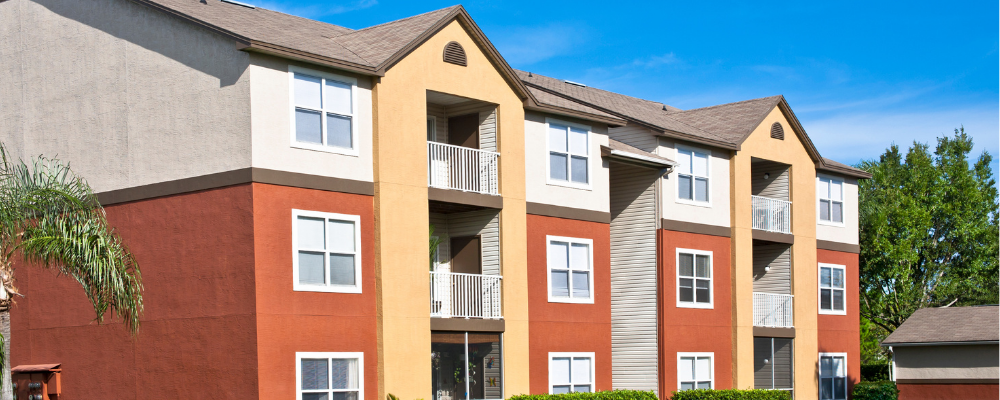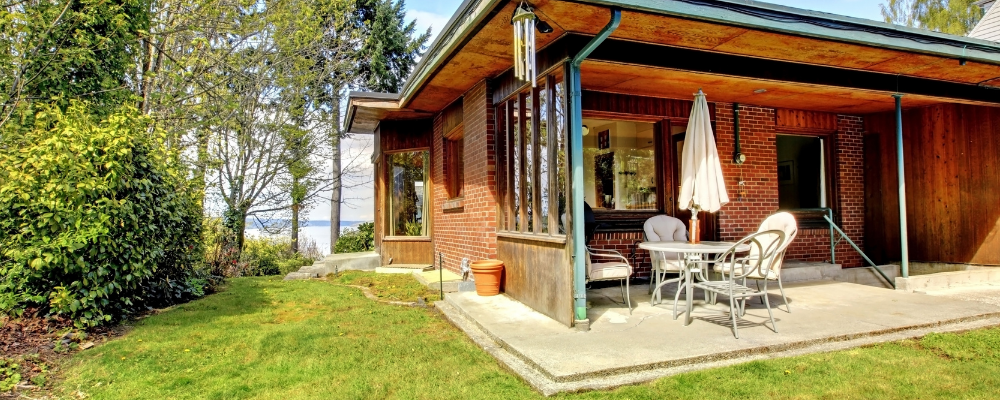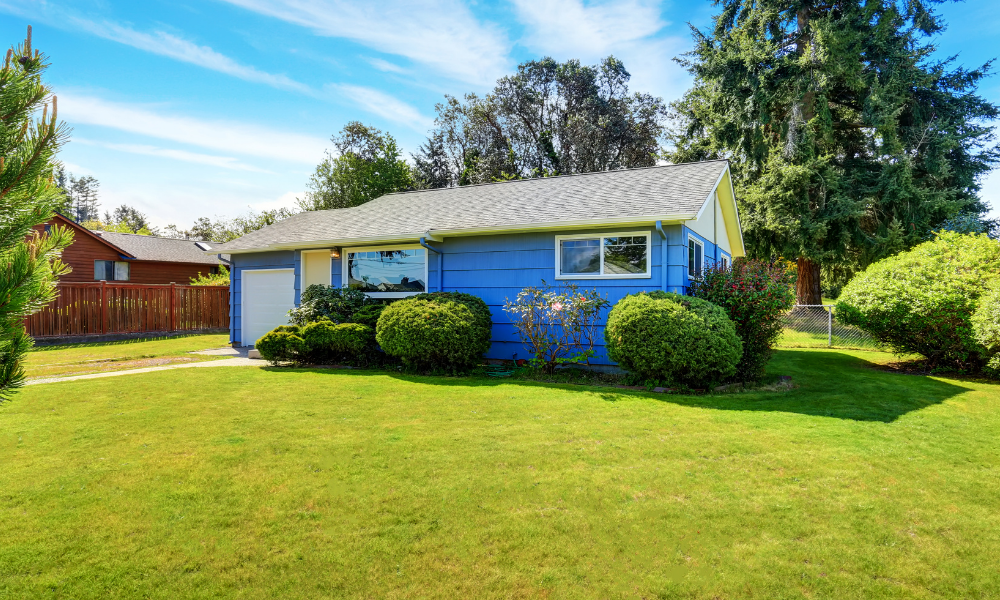A short overview
You may have heard of HUD homes before, but do you know what they are? Government housing is one of the best ways to enter the housing market for those who are just starting out, or don’t fall into the upper-income bracket. Let’s delve deeper into the topic of, what is a HUD home and who qualifies?
Jump To:
If you’re looking at buying a house, it’s important to consider all your options. One option you may have heard of before is HUD homes. What is HUD? This refers to the Department of Housing and Urban Development. It was established in 1965 by President Lyndon B. Johnson in an effort to provide affordable housing options for people in the US. The HUD works alongside the Federal Housing Administration (FHA) to achieve its objectives.
HUD homes can be a useful tool for home buyers who know what they are and how they work, because they can offer home buyers a whole new set of opportunities. Read on to learn about HUD homes and who qualifies for these.
What are HUD homes?

The FHA, along with the HUD, provide FHA loans to those who cannot get traditional mortgages. These loans are offered to people in lower income brackets, and they are secured by the government. The objective of this aligns with the purpose of the HUD which was to provide affordable housing to those who are less fortunate.
HUD homes are residential properties that were purchased with FHA loans, but the homeowners can no longer make their monthly loan repayments and so the FHA takes the homes back and pays the balance of the mortgage. These homes are then sold by the government, to make up the cost of the mortgage that they had to pay.
HUD homes can offer buyers a good deal because the government are motivated to sell the houses as quick as possible, so they are likely to price these homes well, and sometimes lower than market value. The only drawback is that these homes are typically sold as is, so no repairs are done before the sale.
How does HUD home buying work?
Buying an HUD house needs to be done through specific channels, and these are not quite the same as regular home buying. Here’s how the process works.
- Find the right agent
First things first, you’ll need to find an HUD-approved real estate agent. They will be able to submit your bid on the HUD house on your behalf, and you can find one of these houses on the HUD website. The realtor will also be instrumental in helping you make sure that the house is inspected, as HUD online listings are often not detailed, and repairs or defects may not be disclosed upfront without going to view and inspect the property.
- Be prepared
Before you begin your HUD home search, you’ll need to be prepared. This means, line up your financing, get pre-approval, figure out your budget, work out how to pay the down payment, and find the right team to help you make the deal.
- Pick the property
Your HUD-approved real estate agent should have their ears to the ground for new HUD house listings, and be sending these through to you. You can also do you own research on the HUD website regularly, to see which homes are newly listed. You’ll need to act quickly because these homes get snapped up fast and competition is tough.
- Inspect it
Once you’ve found the right place, you may need a home inspector on hand to do a once-over of the property. It’s also a good idea to go and do an inspection of the property yourself, and include a home inspection contingency in your offer, to protect yourself in case there are major repairs needed.
- Sign on the dotted line
If your offer gets accepted, HUD will contact your realtor and they will give you the HUD-specific paperwork which you will need to submit by a certain deadline. Once the bid is submitted, the closing process usually takes 30-60 days, and then you can move in.

How to qualify for a HUD home
To qualify for a HUD home, you simply need to be an owner-occupant, in other words you’re planning on living in the house yourself full-time. The 2 requirements for owner-occupants are:
- You’ll be living in the house for 12 months after you purchase it
- You haven’t purchased another HUD home in the last 24 months
Owner-occupants get first pick of HUD homes for the first 30 days that they are listed. Thereafter, real estate investors are free to bid on the homes. This is done to give owner-occupants a fair chance to get access to these affordable homes before they’re snapped up by savvy investors.
Your financial situation will be taken into account, so your income, credit and debt will be looked at as part of your acceptance into qualifying for an HUD home, even if you’re using an FHA mortgage or other loan.
Benefits of buying a HUD home
- These can be a more affordable options because they’re sometimes sold below market value, which is due to the fact that they’re often in foreclosure. However, bear in mind that this is not always the case.
- It’s one of the best options for lower to middle income buyers who are looking to buy a house in a bustling real estate market.
- The highest bid is selected by a computer according to the criteria that result in the highest profit, which is a fairer way to work this out and won’t result in cash offers being given preference.
- Prices of HUD homes stay lower for the first 30 days while they’re only being offered to owner-occupants and investors cannot bid yet.
- There are HUD-specific incentive programs for buyers who can qualify and get a discount on homes, as well as down payments.
- Buyers get assistance with closing costs as the HUD will cover up to 5% of the sales price on closing costs.

Drawbacks of buying a HUD home
- You will need to find an HUD-approved real estate agent specifically and you cannot use any realtor.
- There are restrictions on the sale of the home, owner-occupants must live in the house for at least 12 months, and they cannot purchase another HUD home within 24 months of buying the home.
- No negotiations will be taking place and the house is sold as is, with no repairs or upgrades done to the house. This can work out as a disadvantage to the new owner if there are extensive repairs that need to be done.
- These houses can be neglected, due to the owners not being able to pay their loans and invariably not being able to afford to upkeep the property. This means that there are often overgrown yards and other problems inside the house as a result of lack of upkeep and sometimes total abandonment.
How to finance a HUD home
Getting the financing to purchase a HUD home is similar to a regular home purchase. You have a few options:
- Conventional loans
These include mortgages or other traditional real estate loans. Conventional loans are a way for home buyers to get their hands on a HUD home. These loans sometimes only require a 3% down payment for buyers which works well for buyers who looking for a more affordable route.
- FHA loans
These come in the form of FHA loans or FHA 203(k) loans which are backed by the government, namely the FHA and the HUD. Bear in mind that the HUD does not supply loans directly, so you’ll need to find a specific HUD-approved lender to get access to FHA loans. These loans generally offer more lenient credit requirements and have a lower down payment requirement.
FHA 203(k) loans offer not only funding for the purchase of the house, but also funding for renovations and repairs. Sometimes HUD houses are in need of repairs, similar to other homes in foreclosure, if the owners haven’t been able to keep up the loan repayments, chances are they won’t have kept up maintenance.

- Department of Veterans Affairs loans
VA loans are provided by private lenders like banks and mortgage companies, but the U.S. Department of Veteran Affairs (VA) guarantees the loan. These loans are eligible for veterans, active service members and select military spouses. One of the biggest perks is that they require zero dollars down payment.
- HUD assistance & buyer programs
The HUD offers assistance, specifically for first-time home buyers and those who require other help with their real estate costs. This is vital for some buyers who otherwise wouldn’t be able to purchase a home. Some of these are:
- Good Neighbor Next Door Program: This program offers public servants, like teachers, firefighters and police officers the opportunity to buy a house with a 50% discount on the price if the house is situated in a revitalization area.
- One Dollar Program: This is a particularly useful program that helps low to moderate income families purchase an HUD home, provided that it has been listed for 6 months or more, for just $1.
- Nonprofit program: This program makes allowance for community and religious not-for-profit organizations to get 30% off their HUD home purchase with the goal of these organizations fixing up the home and re-selling it to those less fortunate or first-time buyers.
- HUD $100 Down program: This incentive is aimed at owner-occupant buyers who would like to purchase a home but cannot afford the down payment. The program offers them the opportunity to put down just $100 for the down payment, instead of the usual 3.5%.
Are HUD homes worth buying?
The answer to this depends on the type of buyer and what their goal is. For first-time buyers and lower to middle income buyers, an HUD home can be a great step to get into the real estate market and achieve the goal of owning a property. It’s important to note however, that they are not always the cheapest option, but they can be more affordable due to lower down payment requirements and closing costs, thanks to the financing options available.
The bottom line
If you do your homework correctly, buying an HUD home shouldn’t be daunting. It’s a case of making sure that the property is fully inspected before signing on the dotted line and adding that as a contingency in your offer, hiring the right team to assist you, and getting financing that you can afford.
Your first stop to finding these properties is on the HUD website, and for first-time buyers there are a variety of resources available that allow them to get into the real estate market easier. Buying an HUD home can be a great option for lower-income buyers and first-time buyers who are planning on living in the home, provided that they do their research and get prepared ahead of time.

